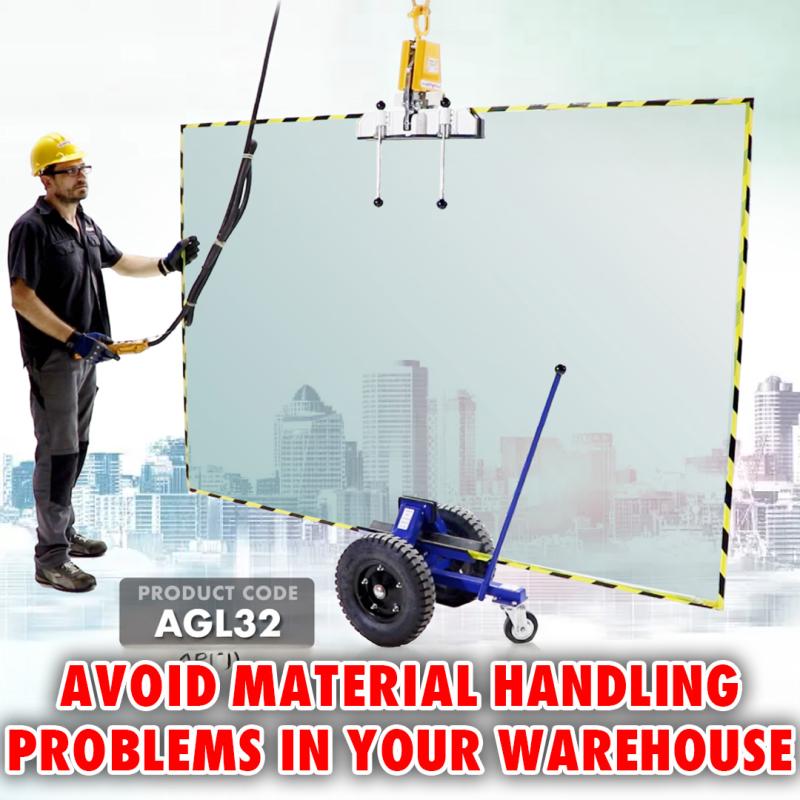



Yet common pitfalls—ranging from incompatible conveyors to inconsistent maintenance—can disrupt workflows, inflate costs, and jeopardize safety. In this SEO-focused guide, we’ll dive into the five most prevalent material handling challenges and show you how to overcome them. Along the way, we’ll highlight proven solutions and expert-recommended tools—from lifting clamp attachments to vacuum lifter slab lifter units—to keep your operation running smoothly.
In the competitive material handling industry, even small inefficiencies can translate into large budget overruns. Well-designed processes and the right material handling equipment not only accelerate throughput but also reduce labor strain and accident risks. Leading material handling companies emphasize:
Minimizing unnecessary touches in the handling material process
Standardizing on proven equipment and methods
Embedding safety at every transfer point
By proactively addressing common issues, you’ll achieve measurable gains in productivity, equipment lifespan, and workplace morale.
It’s tempting to install a one-size-fits-all conveyor system, but that assumption often backfires. Using a belt or roller conveyor ill-suited to your load profile leads to slippage, belt misalignment, and unscheduled downtime. In worst-case scenarios, conveyor jams become safety hazards.
Match Load Characteristics: Ensure belt material, width, and roller spacing align with your products’ weight and dimensions.
Route Analysis: Map out the entire flow to avoid steep inclines or tight curves that require specialty conveyors.
Modular Design: Choose conveyors that adapt easily—so you can retrofit without extensive downtime.
Partner with experts who understand both traditional belt conveyors and advanced options like magnetic or high-friction rollers.
Materials like sand, ore, or scrap metal can accelerate component fatigue—especially in screw conveyors and chutes. Replacing drums or liners too frequently drives up maintenance budgets and production pauses.
High-Grade Alloys & Liners: Opt for abrasion-resistant steels or replaceable UHMW liners in high-wear zones.
Predictive Wear Monitoring: Use vibration sensors and thickness probes to forecast replacements before failure.
Expert Consultation: A seasoned vendor can recommend the exact compound or coating to match your throughput.
By investing in the right wear-resistant elements up front, you save on replacement costs and avoid corrective downtime.
Improper particle size separation can clog downstream equipment, interrupting flow and causing material backups. From dust-laden fines to oversized chunks, undetected out-of-spec material leads to belt damage and blockage.
Vibratory Screens: Highly configurable for precise size gradations.
Air Classifiers: Remove lightweight particles before they enter main conveyors.
Inline Inspection: Use machine-vision systems to flag irregular shapes or debris.
Building screening and classifying into your initial layout prevents bottlenecks and maximizes the uptime of your core conveyors and sorters.
A supplier unfamiliar with your industry’s demands may default to off-the-shelf designs that underperform. Inconsistent component quality, mismatched controls, or incomplete documentation can all increase integration headaches.
Industry Track Record: Look for case studies in warehouses similar to yours.
Service & Support: Ensure they provide on-site commissioning, training, and spare-parts programs.
Custom Engineering: The best vendors tailor designs—whether you need heavy-duty gantry crane material handling or lightweight, mobile tuggers.
A strong partnership guarantees that your core lifting equipment, from lifting clamp fixtures to hoists, meets performance and safety standards.
Waiting for equipment to fail before fixing it leads to emergency work orders, overtime costs, and production losses. Noisy bearings or fluid leaks often herald more serious breakdowns.
Scheduled Inspections: Daily walk-arounds and monthly in-depth checks for belts, bearings, and hydraulics.
Condition Monitoring: Use IoT sensors to track vibration, temperature, and flow rates in real time.
Predictive Analytics: Leverage software dashboards to anticipate failures and plan shutdowns in off-peak windows.
A disciplined maintenance regimen extends machine life, reduces unexpected downtime, and keeps operators safe.
To complement your process improvements, consider integrating these proven tools:
Slab lifters handle delicate panels without chipping or cracking
Scissor lifters excel in vertical material positioning for ergonomic height adjustments
Invest in overhead solutions like cranes and hoists to free up floor space
Map out the handling material process end-to-end for workflow optimizations
Deploy precision vacuum lifter products for non-porous loads
In tight or temporary areas, wall-mounted cranes deliver flexible lifting capacity
Secure goods with ratchet tie down traps can elevate your processes to prevent slippage
Develop comprehensive material handling equipment strategies tailored to your throughput and space
Navigating the complexities of warehouse material handling requires a blend of smart planning, the right material-handling equipment, and close collaboration with experienced vendors. By addressing conveyor compatibility, wear-resistant materials, screening protocols, vendor selection, and maintenance discipline, you’ll minimize downtime, control costs, and enhance safety. Integrate the specialized tools highlighted above—whether it’s a vacuum lifter slab lifter or a modular gantry crane—and you’ll transform challenges into opportunities for operational excellence.
Sign up to receive the latest info on new Aardwolf products, special offers and more.
By signing up you agree to receive emails from Aardwolf with news, special offers, promotions and other information. You can unsubscribe at any time.